INFLUENCES: AUTHORS, PRIME NUMBER POST FOR FIFTH DAY
Four Authors From My Early Teens Who Impacted Me (and still do)
(photo credits: Google search. Ain’t it grand?)
In my first post on this series, “INFLUENCES” 05-27-25 (
), I wrote about four main things that influenced me as a reader that directly, as well as later, fed into my writing. Those four things: God (church and the Bible) Readers in my family (mother, father, brother, and grandparents), Movies (Star Wars!) and Music (mostly classic rock, which was brand new then and still proving why it’s classic) were the genesis of sources: primeval and primal and pictures (moving) and primitive.
In this post, I will present four authors who had a profound influence on me. Everyone has authors they come across at certain times in their lives that leave a lasting impression for one reason or another. It may be that they are not your all-time favorite author or read or book, etc, but their impression is undeniable, unforgettable, and unmistakable on how they have effected you.
This will be easy as I will move through authors chronologically (meaning as I came across their works and spent time in their worlds through turning their pages). I will be sticking with FOUR. As in the my first post, the number four, according to Bullinger’s Number in Scripture refers to Creation: four being made up of 3 +1 or the Godhead and all that came after (Creation). Four, he points out, is a “world number”: there are four elements, four seasons, four periods within a day, four lunar phases, and four regions of the earth or cardinal points. East, west, south, and north. So, these four influences were my foundation.
There other writers I came across and poured over and still admire, but they were not ones I tried to emulate. I still read some of these authors from my early teens from time to time for nostalgia. Also, I must note that certain writers like Jules Verne (20,000 Leagues Under the Sea, Journey to the Center of the Earth, and Mysterious Island) I read in comic book or abridged versions. These did not measure up to the breadth of the movies and it wasn’t until much later that I read the original unabridged versions. The same goes for Alexandre Dumas’ The Three Musketeers and The Count of Monte Crisco and Robert Louis Stevenson’s Treasure Island. Treasure and 20,000 Leagues I long had a fascination with since I caught bits and pieces of the excellent Disney movie adaptation and my brother had copies of both books (which he later gave me after he moved and which I re-read often every few years). I wrote about this in the first “Influences” post.
Ok, here we go. Off to the races!
#1 the Bible (assorted writers inspired by the Almighty Muse (Spirit), so I will give God/Jesus the credit as Editor. Sometimes, the human editors fell asleep or quibbled over lines here and there, but there is a chain of evidence for much of it going back a ways. Say what you want about it and say what you will (while you can); it’s the most sold book and perhaps the most quoted book/work in history (though, not most read book as clearly it’s not that well understood or emulated given the choked dockets in most courts of laws the world over, the amount of armies marching around, and the number of hateful posts on social media). It was here before you and me and it will be here after you and me. I hope it will continue to sustain me in the hereafter ever-after. To be one with Almighty Muse is a good goal. Gonna give my ideas back to the Source.
#2 Stephen R. Donaldson. I wrote about this in the first “Influences” post, but I wanted to expound on it. Might as well, since Substack has semi-infinite band width. By the time of the 6th Grade, I was a struggling reader when I was given the challenge by my parents to put down the Sgt. Rock and Weird War Tales comic books and pick out a book and finish it. I saw an ad in the back of a Buck Rogers book for this series: The Chronicles of Thomas Covenant the Unbeliever. If I hadn’t had a good dose of Sunday School and Vacation Bible School, I wouldn’t have recognized that four of those words come straight out of the Bible. Chronicles—I loved the history of Israel’s kings, mostly David; Thomas—pretty straightforward and salty disciple who gave his guidelines before he was gonna believe in Jesus’ resurrection, and wouldn’t you know it? Jesus met those guidelines; Covenant—one of the heaviest words in the Bible and one that means two parties are to keep their word and if one breaks their word then the other party is supposed to do certain unpleasant things; however, though, the party of the first part, we humans, often break our word daily/hourly, the party of the second part, the Godhead, always keeps His word; the Unbeliever—one must have faith to please God for one must believe that He is and that He alone can help you and if you don’t believe that then you unbelieve it.
Donaldson is a writer of high fantasy with intricate plots and detailed worlds, but it reflects the moral battles and hurt mind and hopeful aspirations of his main character, an anti-hero and failed writer and a leper, to boot, Thomas Covenant.
This is a portal fantasy where Covenant is summoned to the Land, a place of unimaginable and almost limitless possibilities that is locked in a struggle with an eternal adversary enemy known by many names, but mostly called Lord Foul. Since he appears to be a reincarnation of an ancient hero and bears the ring of white gold, he’s expected to led the way in the war against Foul. The war is not only external as Covenant and those helping him come up against a myriad of external forces of twisted evil and wrongness, but a greater part of the struggle is internal as at times certain characters unleash a horrible hellfire of despair called the Ritual of Desecration.
The result? I think I bought all three books at once: Lord’s Foul Bane, The Illearth War, and The Power that Preserves. Their respective colors were red, blue, and green. I inscribed each with the date that I read them, the first being inscribed from March 1981.
After I finished the series, I had the courage to read other authors like Terry Brooks and Brian Daley, who both had their publishing debut in 1977 (along with the debut of Star Wars), which seems to have been a knockout year for knocking out epic fantasy! Then come September, to my surprise, I saw the first book (with a purple cover) of The Second Chronicles of Thomas Covenant, The Wounded Land. Waiting for these new installments would bring me up to 1983. But before that, I had to surrender to the fact that Donaldson used archaic words and liked to flex his M.A. in English vocabulary and I asked my parents for a dictionary for Christmas in 1981. My parents, secure in their victory of having made me a reader for life (and knowing that I wanted to be a writer as I had finished my first epic fantasy book, by hand, The Dark Dragon), high fived each other and shouted, “Yes! Our son’s a nerd!”
I even fell into a partnership of nerdom with two other like-minded nerds: two Air-Force brats who loved fantasy (starting with Tolkien), Dungeons and Dragons, Star Wars, video games, and Monty Python. I had found my first circle of friends who shared a love for another writer as well (my number #4 influence, Stephen King).
(**Note: of worthy mention: besides Brian Daley whom I’ve reread now and then, another standout author from my early years is the forgotten sci-fi tale-spinner H. Beam Piper, who has written on alternate history and time travel: his best being Lord Kalvan of Otherwhen—about an alternate world where the secret of gunpowder is closely guarded by priests who can manipulate everyone until Calvin, a hapless bystander, sucked into this alternate world via a time-warp demonstrates he knows the priests’ secret and sets up a wonderful conflict, and future human space colonization and its effects ala Avatar with the best being Little Fuzzy, Cosmic Computer, Uller Uprising, and Space Viking. Others, like Brooks, haven’t aged that well in the re-readings).
#3 Edgar Allan Poe (Eddie to his wife): This was a private admiration kept separate from my nerd friends. The usual introduction for a reader in public school is to read Poe’s “The Tale-Tell Heart” between 6th-8th Grade. Then “The Cask of Amontillado” in 9th Grade. Then “The Masque of the Red Death” in 10th Grade (but some daring textbook editors like to substitute “The Pit and the Pendulum” at this level and after teaching both, I prefer “Masque” for this grade level). Then “The Fall of the House of Usher” in 11th Grade. That was the part of the curriculum when I was a student and that still held true for my school this last school year of 2024-2025. (Since I teach 9th and 10th Grade English, those students were exposed to some Poe—sorry Poe Haters, you might as well as surrender to becoming Poe-Tasters). Also, I slip in “The Raven” as an example of a narrative poem for 9th Grade.
The funny thing is that when I was in college (Southern Illinois University at Edwardsville to be exact, but Americans don’t say university as the Brits do, we say college), we read “The Cask of Amontillado.” Now, my question to all y’all is which grade is “The Cask of Amontialldo” for? 9th Grade high school or Freshman College (or 13th Grade?)? And the answer is?
None of the above.
I could not imagine Poe writing “The Tell-Tale Heart” and in his mind thinking, This is only for 8th Graders. Sixth Graders might could handle it. Fifth graders? Not on your life! Also, Poe had a foundational school experience in England where he became a walking dictionary. (I believe he referred to this experience of having an uncaring father ship a boy off to boarding school for a rigorous English education in the excellent story, “William Wilson.”). Public educators with a train of degrees that drag behind them in the dust when they walk into a room decide these things for the unwashed masses who come to school late dressed in their jammies and onesies. Only “they” have the power and the authority to put the appropriate labels on the available text and its place in the acceptable curriculum so that is quite safe and deemed “highly qualified material” (the latest academic buzz word for a rubber-stamped approval by a Department of Educadtion).
Bovine defecation.
Or, if you prefer, equine excrement.
When my students ask me why I like Poe, I say two things that are true: One, he is known for both short stories and poems—having won awards and notoriety for both in his lifetime—and how many writers for known for both those mediums? And Two, he is a genius. Yes, he’s a walking dictionary, but he is the King of Genres. You like science fiction? He has the beginnings of the scientific adventurer in “The Unparalled Adventures of One Hans Pfaal” a balloonist who escapes to the moon; the hollow Earth theory in “Ms. Found in a Bottle” and “Descent into the Maelstrom” as well as parts of The Narrative of Arthur Gordon Pym. What about detective fiction? Poe beat Doyle’s Holmes to the punch with Auguste Dupin in “The Murders in the Rue Morgue” or “The Purloined Letter.” You say like the cipher coded treasure map story of National Treasure? Poe did a cipher code leading to a treasure in “The Gold Bug.” We know about doppelgangers being an evil double of a good person causes a ton of havoc and ruins the good person’s life. But what if there was a doppelganger where the shadow double was the conscious for a dude who was a jerk and ruins all his evil machinations? Yep, Poe wrote that kind of twist on a doppelganger, “William Wilson.” Then you include the psychological male/female counterparts inside a house used a metaphor for the mind in “The Fall of the House of Usher”, plus an excellent allegory in “Masque”, plus an unparalleled tale of revenge out of wounded pride, “The Cask of Amontillado.”
What? You say like poetry better. Well, Poe put the poe in poetry. I have always admired his ear of rhyme and rhythm as found in “The Raven”, “The Bells”, “Annabelle Lee,” and “The City in the Sea.” He wanted to be a poet first and foremost. He thought the brevity of poetry was the goal of all writers, but if you couldn’t make a poem then by all means write a tale, but keep it short so that the tale could produce the maximum effect.
I bought a “complete collection” of tales, stories, articles and poems by Poe and read it all by the winter of 1984. I was moving out of straight fantasy and Tolkien-land. Science Fiction was palling to me. I wanted magic and mystery. With Poe, I found all that plus the macabre along with his grotesque and arabesque. Besides of all the usual tales and suspects that people bandy about with regarding Poe, the one tale that I can’t forget because it creeps me out is “Berneice” or rather Berneice’s teeth or rather the narrator’s obsession with them, much to the horror of his brothers-in-law.
(**note: of worthy mention: there are only two writers I label as a genius: Poe and William Shakespeare. Sure, there are others who come close to earning or deserving that title like William S. Burroughs who could shoot genius into his veins and crap it out; maybe Ray Bradbury, who breathed it in and out like lightning relaxed. Both Poe and Shakespeare were masters of at least two mediums with the difference or distinction being that while Poe was a walking dictionary and had different genres blooming in his garden of imagination, Shakespeare added hundreds of words and phrases to the dictionary and, though, never creating a single new genre, he did provide some good soliloquies for character motivation, didn’t he? Shakespeare became a greater influence on me in college and in my adult reading and teaching life.)
I consider Poe to be like a fine wine. A rare Amontillado. It is distilled from the subterranean terrior of the terror of our minds (collective unconscious?). Enclosed in a broached keg kept in a cool place underground to be savored and shared the week before Halloween or on a dreary midnight in December or at the height of Carnival. I keep it down in the deepest catacombs in my basement. Would you care to take a look and take a sip for yourself? It is just through that recess under the pillar. Don’t mind the pile of bones hiding the trowel or the bricks or the mortar or the chains.
After devouring Poe, I wanted more. More shudder. More horror.
I wanted to peek under my bed at night. Gather enough courage to open the closet door and winnow through the stale clothes and forgotten boxes to find the dread thing skulking in the corners. I wanted to face the thing that crept up the stairs and down the hall towards my bed when I was supposed to be sleeping safe and sound.
#4 Stephen King (Stevie to his relatives). My introduction to Stephen King was a tv mini-series, Salem’s Lot, staring the criminally underrated David Soul. It scared the be-Jesus out of me. When I saw the little Garrick boy float into his older brother’s window to suck on his neck like a hungry tick, I slept clutching a Bible and a cross around my neck.
Then I was stupid enough to buy the book. It was my first, and favorite, King read: ‘Salem’s Lot. I can’t remember what I read next: either Night Shift or The Stand (the inscription in my copy which I re-read last summer states February 1982). My two Air Force besties also liked King and we gave each other summaries and opined why the last King book we read was the best one yet or at least better than the one the other friend had just read. King was stretching his wings then and came out with some experiments in fantasy (of all genres!): The Talisman (which was just o.k.), The Eyes of the Dragon (which was better since it had King’s perennial Bad Guy: Flagg), and one of his best fantasy creations The Gunslinger (which, again, featured, to great effect, Flagg) that was spun into a questionable multi-book series The Dark Tower of which I have read half before losing interest.
My other favorite King horror book is the epic It. And then any self-respecting King fan must come to grips with the Richard Bachman books. I have not read them all, but one of them, The Running Man, is among my top five fave King books: no, top three: ‘Salem’s Lot, The Running Man, and It are tops for me. With The Running Man, King made a perfect story that was nothing but story. A believable and dreary dystopian America overdosing on prescription drugs and tv-game shows (forerunners of reality tv and now DIY streaming podcasts) of which some has come true and much of it is still in our everyday lives and consciousness. It is about the soft white underbelly of America’s prideful arrogant culture.
King’s forays into fantasy taught me that it was ok to switch it up with genres. To cross pollinate plots and hop from trope to trope. His defense was that horror and fantasy were very closely related. Brothers, in fact; two sides of the same coin; only different when held in the light. Given it has some dark “sword and sorcery” elements, Fantasy tends to be more “epic” and “heroic” while horror is more internalized and psychological and full of shudder. Both can be symbolic, as anything can be.
The only labels and walls and prisons are in our little minds.
(**note: of worthy mention: there is one writer, who time and time again, was recommended to me by various English teachers: Ray Bradbury. Like horror? He writes weird Twilight Zone stuff that is not straight horror, just strange. Like fantasy? He writes what could be described as dark or urban fantasy, not so much elves, but definitely involving dwarves. Like sci-fi? He blends dystopian settings with timeless tropes like time travel, etc. But since I didn’t like my English teachers or trust adults who tended to be critical of my choices or tastes in music, movies, etc, I ignored this recommendation until my thirties. Bradbury became a huge and greater influence upon me later in life).
It’s been said a picture of someone’s library tells you a lot about their personality (if not tastes and reading habits). I will include a pic of my main book case. It does not have any of my Bibles or Poe or any Verne and Stevenson as I keep those books elsewhere (I guess you can call those books my secreta scriptorium!)
(photo credit: Me. My main book case. Even the dust is mine).




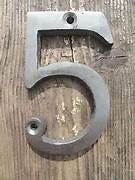
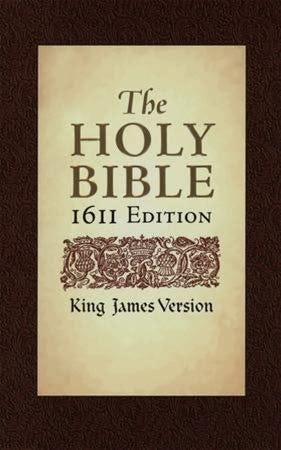
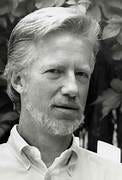
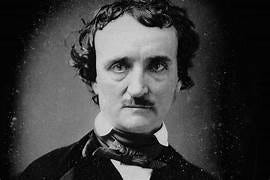
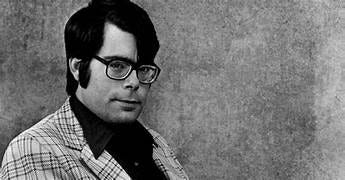
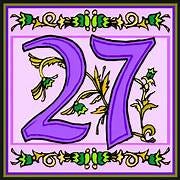

@Janine Eaby thank you for the like!
@Lemoine Drake, thank you for the like!